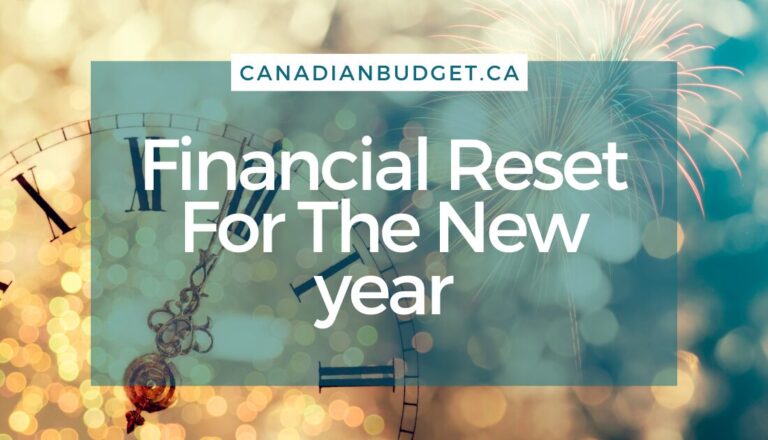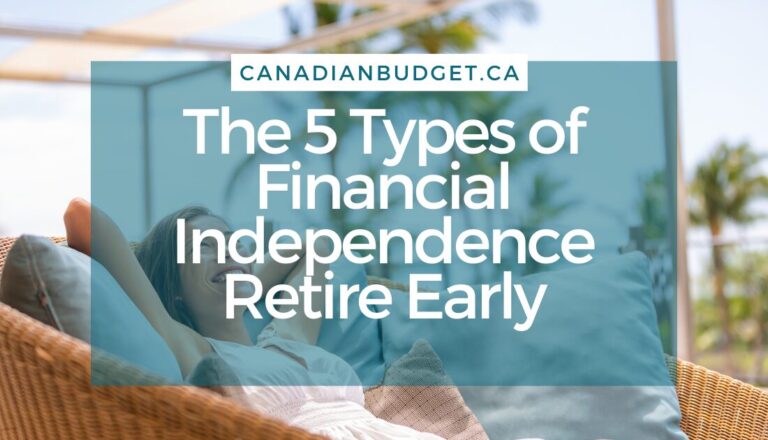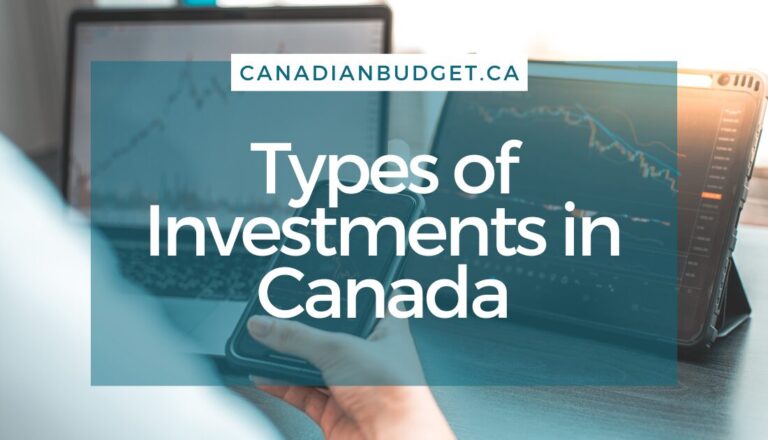Credit touches so many facets of our lives, understanding what makes up your credit score in Canada, and what a good credit score in Canada is, can help you navigate the world of credit to your advantage. This article will help you understand what makes up your credits core in Canada so you can make a positive impact on your score.

What makes up your credit score in Canada?
Table of Contents
ToggleYour credit score in Canada is calculated on a range from 300 – 900, 900 being perfect. Credit scores of 660 and above are generally considered good.
Your credit score is made up of five different components
- Payment History
- Credit Utilization Rate
- Length of History
- Account Mix
- Inquiries
Let’s dive into each of these components for a deeper look at what they measure and how you can take steps to positively impact your score.
The first two make up 65% of your score, and are the most important.
Payment History
35% of your total credit score comes from your Payment History.
Have you paid your bills on time, always paid at least the minimum, and never missed a payment? Then you are probably scoring pretty well on this component.
Late to pay, carry a balance, or miss payments? That can really have a negative effect on this measurement of the score. Having trouble managing your money – here some ways to make a budget you can stick to.
Credit Utilization Rate
Credit utilization rate accounts for 30% of the overall score. What this is measuring is how much of your available credit are you actually using. Are you maxing out your credit card constantly or are you only using a small portion of the total available credit?
Many sources recommend utilizing no more than 30% of your credit at any given time. If you have a $1,000 limit card – stick to using $300 or less at a time. A $10,000 limit card, use under $3,000. This is a general guideline, but if you want to keep it from impacting your scores – keeping the credit utilization rate low is key.
If you consistently have high levels of credit utilization (eg. maxing out your cards), it makes you look risky to lenders and leads to bad credit scores.
Length of History
How long have your credit accounts been active? This component accounts for 15% of your credit score. The length of your history shows lenders your track record. If it is long and strong, they are more confident to lend to you. Keep your longest-held cards open as long as possible (especially if they are no-fee cards – just pay the balance off and put it away in your documents drawer.).
When you are thinking about closing out any cards you may no longer be using, consider the history of the account first.
Account Mix
Are you capable when it comes to handling multiple forms of credit? Have you successfully managed a car loan, plus student loans, and credit cards at the same time? This is only worth 10% of the score, so small potatoes compared with the first few.
All of these items come together to create and impact our credit scores in Canada.
Inquiries
Inquiries to credit scores in Canada are worth about 10% of the total overall score. Creditors make inquiries about your credit score any time you apply to open a line of credit, apply for a credit product, or have a credit check done. These hard checks, as they are called, do have a small impact on your score.
Any time you check your own credit – this does not have an impact on your score.
Know your credit score
If you don’t know wether or not you have a good credit rating in Canada, you should definitely check your credit score to find out. As with anything – unless you are measuring, you don’t know if you need to improve it, or how. Knowing what makes up your credit score in Canada, its time to figure out where you stand.
Checking your credit can also be a way to verify if you have been a victim of fraud or identity theft, as you would be able to see any accounts opened in your name.
There are two major credit agencies that serve Canadians, which are Equifax and Transunion. You can contact them directly to request your score report. Transunion offers a monthly “Credit monitoring plan” which is paid and allows you to check your score. I have found in the past it’s a bit hard to get your free report from them.
Free and Quick Ways to Check Credit Scores in Canada
Equifax
Equifax also offers a paid monitoring option – but they also now have a free score checking directly on their website which makes it much easier to check than it had been previously. It can help you understand your credit score.
Borrowell
Borrowell was the first company in Canada to allow Canadians to check their credit score for free! They also offer a free personalized credit monitoring tool. You can use their tools to help improve your financial well-being and understand your credit score. Sign up here to get your free credit score with Borrowell
If you are one of my American readers- its quite easy to get your free report – you can check here: https://www.annualcreditreport.com/
I hope this helps you understand what makes up your credit score, and why responsible credit use is so important!
New To Canada with No Credit History?
- Understand what makes up your credit score in Canada
- Always use less credit than your limit keeping your credit utilization rate low
- Always pay your bills on time
- Always pay the minimum
- Don’t carry a balance
Responsible credit use
Using credit responsibly means living within your means, staying within your budget, not maxing out your cards, and paying your card off in full each month, never carrying a balance. These practices will help you maintain good credit scores, be able to live debt-free, and grow your wealth.
As exclusive credit card users ourselves, we know the amazing benefits of responsibly using credit! Understanding what makes up your credit score is the first step toward taking proactive steps to use credit responsibly.
More on the blog...

Why Wealthsimple Could Be the…
Wealthsimple Banking Review 2025: Best No-Fee Bank in Canada
Read More
Financial Reset For The New…
How to Do a Financial Reset for the New YearAs the new year begins, it's the perfect time to take...
Read More
The 5 Types of Financial…
Starting your journey towards Financial Independence Retire Early (FI/RE) in Canada opens up possibilities for those eager to take control...
Read More
In a Public Sector role?…
Public sector roles, including those in schools and hospitals, make up approximately 21% of employment in Canada. That includes teachers...
Read More
8 Canadian Investment Accounts To…
If you are new to investing, you might be wondering what the Canadian investment accounts are available, and which is...
Read More
What Are Canadian Real Estate…
Canadian Real Estate Investment Trusts: What They Are and Should You Invest? Canadians have heard owning property was the path...
Read More
6 Ways Fixing Credit Scores…
Struggling with debt can significantly impact your financial well-being, especially if your credit score suffers. Fixing credit scores is important...
Read More
The Paying Yourself First Method
Taking control of your financial future starts with a simple yet powerful concept: paying yourself first. Shifting your money mindset...
Read More
How to Calculate Retirement Savings…
When is a good time to calculate retirement savings needs? When retirement may be decades away it’s hard to think...
Read More
Different types of investments
There is a lot to understand about the different types of investments available in Canada. From the traditional options of...
Read MoreAbout The Author
Jessica Morgan
Jessica Morgan is the founder and CEO of Canadianbudget.ca. She is passionate about personal finance and helping Canadians improve their financial literacy by providing more Canadian focused financial content. A millennial mom of one, she has a burning obsession with all things personal finance.
Jessica has a BA in East Asian Studies from York University and a Masters in Business Administration from Toronto Metropolitan University. She is a career public sector employee with a Hybrid Pension, and an advocate for Canadian women to improve their personal finance knowledge.
Jessica Morgan
Jessica Morgan is the founder and CEO of Canadianbudget.ca. She is passionate about personal finance and helping Canadians improve their financial literacy by providing more Canadian focused financial content. A millennial mom of one, she has a burning obsession with all things personal finance.
Jessica has a BA in East Asian Studies from York University and a Masters in Business Administration from Toronto Metropolitan University. She is a career public sector employee with a Hybrid Pension, and an advocate for Canadian women to improve their personal finance knowledge.


